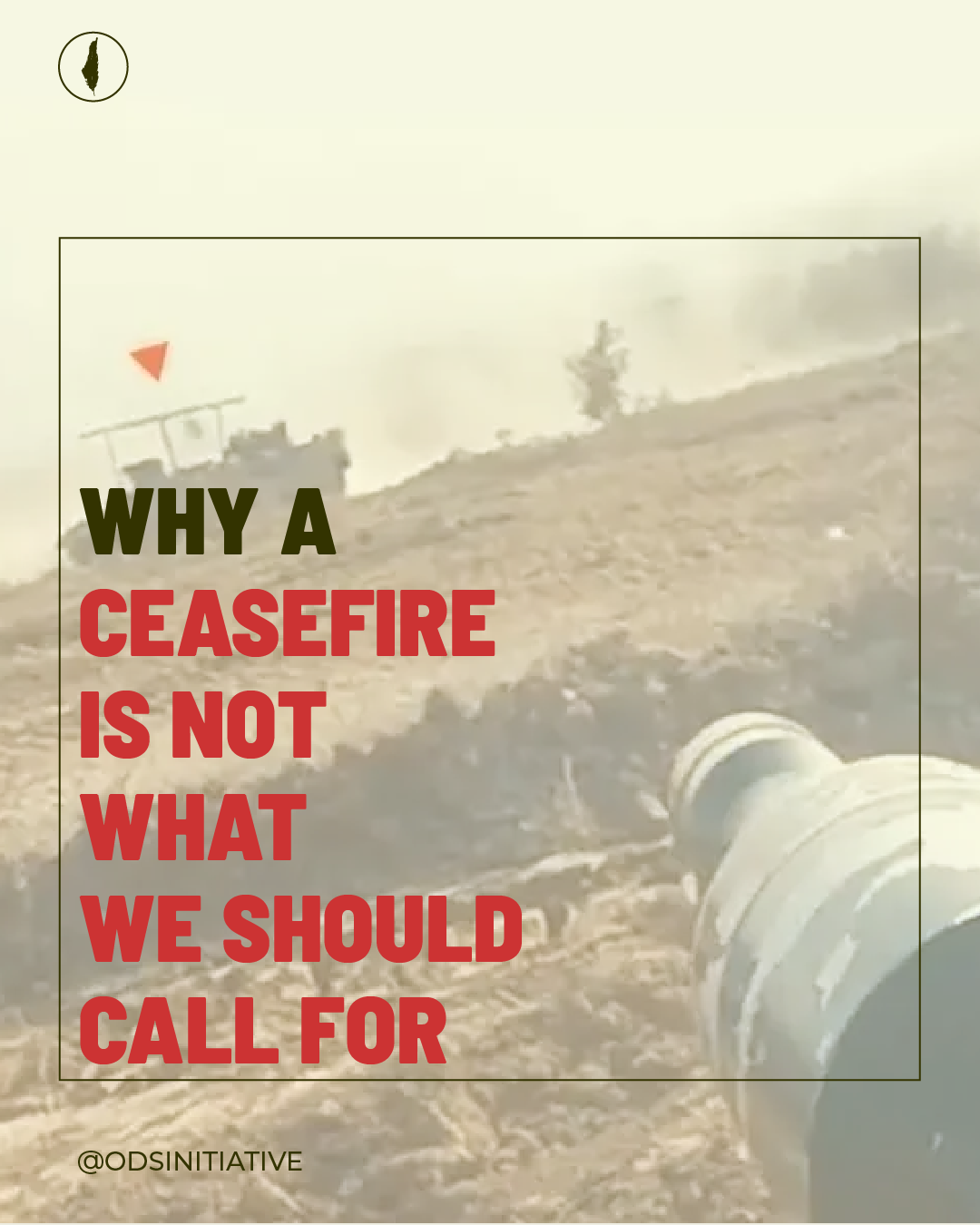
The Israeli genocide in Gaza is not an isolated incident, but one more step in Israel’s more than 75-year-old settler-colonial endeavor. Our calls to counter it should also take note of the context in which it is happening.
Otherwise, “out of context” calls for an end to the ceasefire fail to answer the question: What next? This has practical implications for Palestinians, as the return to the siege and occupation that preceded the all-out genocide and the continuation of Israel’s settler colonial practices that caused it all can both satisfy the “ceasefire now” condition.
Calling for an end to the ceasefire also equates the occupiers’ illegitimate “fire” with the resistance’s legitimate “fire”. This also has practical implications, as it calls for an end to the Palestinians’ practice of their right to resist, leaving them weaponless against their occupiers, and paving the road for condemnations of any future legitimate acts of resistance.
This does not mean that all those calling for a ceasefire are Zionist agents. Honest mistakes are made, and in the past, the ODS Initiative has also called for a ceasefire—although we always did so in the context of the decolonization of Palestine, meaning the dismantling of the “Jewish state” and the establishment of its exact opposite: One inclusive, secular, democratic Palestinian state.
From now on, instead of calling for a ceasefire, we will call for the end of the aggression and/or the end of the genocide, as a first step toward a free, democratic Palestine. We call on all Palestinians and allies to do the same.